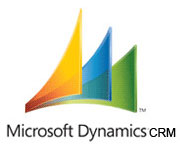It’s second time that I have this error but everytime I forgot the solution and I need to search again…. 🙂 Now I want to save the solution here on my blog.
Problem:
So I ran into a very tricky error when building a custom tool to register CRM 2011 Plug-ins. I wouldn’t be surprised if other people run into the same issue when registering plug-ins programmatically. And its such a strange problem I thought it deserved an explanation.
Here is the exception I got when retrieving a list of records from CRM:
<strong>A proxy type with the name account has been defined by another assembly. Current type: Plugins1.Entities.Account, App_Code.zzq-u5xe, Version=0.0.0.0, Culture=neutral, PublicKeyToken=null, Existing type: Plugins1.Entities.Account, vender portal, Version=1.0.0.0, Culture=neutral, PublicKeyToken=null
Parameter name: account</strong>
I trace the problem what it is? It is actually problem from Organization Service i used,It gets definition of account entity definition from two assembly and confuse to process which assembly should be executed for actual objects.
Solution:
Issue resolved by specify assembly for execution or creating objects for entities:
just have to add a new ProxyTypesBehavior:
ClientCredentials credentials = new ClientCredentials();
credentials.Windows.ClientCredential = new NetworkCredential(username, password, domain);
credentials.Windows.AllowedImpersonationLevel = System.Security.Principal.TokenImpersonationLevel.Impersonation;
IServiceConfiguration<IOrganizationService> orgConfigInfo = ServiceConfigurationFactory.CreateConfiguration<IOrganizationService>(new Uri(@"[...]/XRMServices/2011/Organization.svc"));
OrganizationServiceProxy client = new OrganizationServiceProxy(orgConfigInfo, credentials);
<strong>client.ServiceConfiguration.CurrentServiceEndpoint.Behaviors.Add(new ProxyTypesBehavior(Assembly.GetExecutingAssembly()));</strong>






